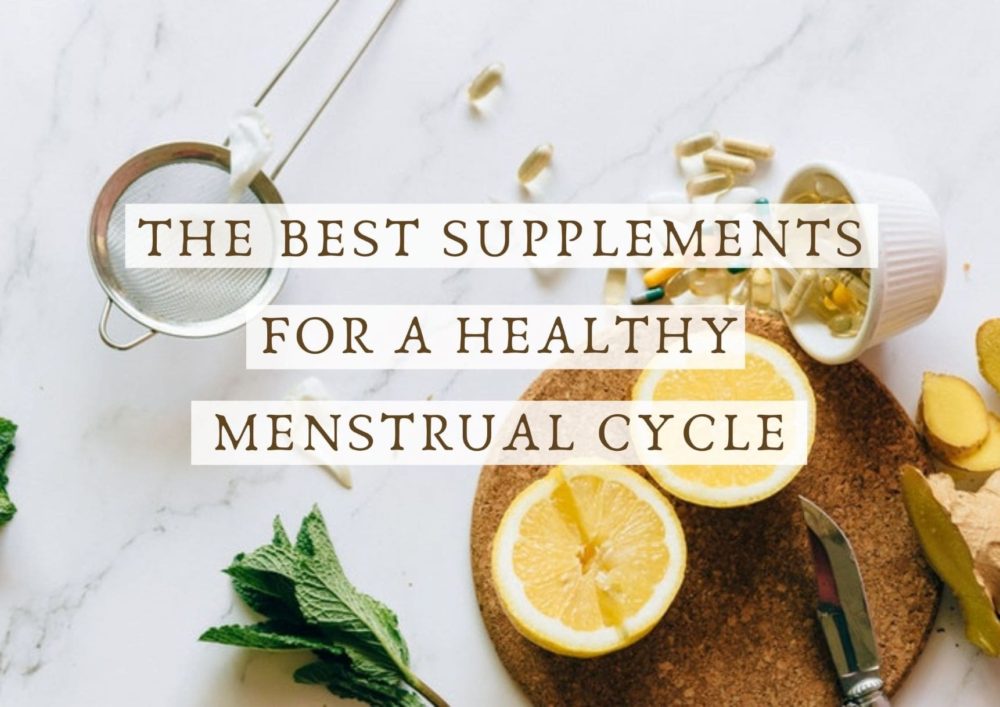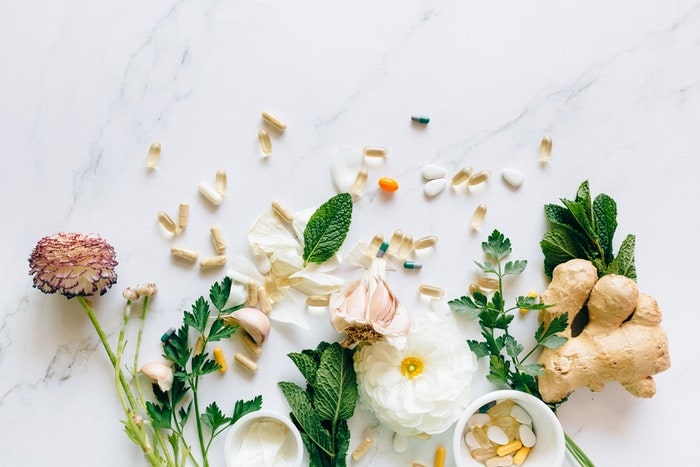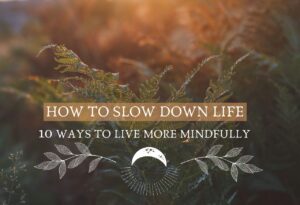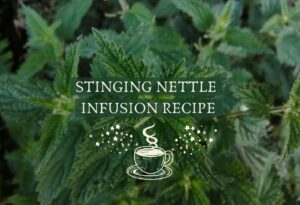This blog post is about the best supplements for a healthy menstrual cycle.
This post contains affiliate links.
The menstrual cycle is an important vital sign for the health of women. A healthy menstrual cycle indicates that the body is healthy and successfully doing what it’s supposed to. But when there are irregularities, PMS, painful cramps or other menstrual problems, it tells us that there may be an imbalance in the body.
When you listen to what your body is telling you, you can get important information on how to heal yourself and improve your health. Because I am sure that you want to live your life to the fullest, feeling healthy, energetic and amazing while doing so. By listening to the signals of your body and making sure you have a healthy menstrual cycle, you are supporting your own optimal health!
This post will tell you about the best supplements you can take to support a healthy menstrual cycle and thereby improve you health, so you can live your life feeling amazing.
What is a Healthy Menstrual Cycle?
The menstrual cycle can differ from person to person. But there are some key points that indicate that your menstrual cycle is healthy, which are the following:
- It’s between 21-35 days long
- It’s regular
- Bleeding lasts 3-7 days
- Blood flow is manageable
- Minimal hormonal symptoms
- No PMS
- No painful cramps
A healthy menstrual cycle will thus be between 21-35 days long and be regular. A regular cycle means that your complete cycle is about the same amount of days every time, for example: 29 days. Also the menstruation flow will be between 3-7 days long and the bleeding not too heavy nor too light. You furthermore feel calm before you period arrives and experience none or minimal cramping.
The natural rise and fall of hormones in the body is naturally going to have an effect on how you feel. Which means that mild changes during your cycle, for example changes in your energy level, mood, libido and creativity, are normal. But when you experience symptoms that interfere with your daily life, such as extreme mood swings, painful cramps or heavy bleeding, it can indicate an underlying imbalance.
Read: How to Relieve Menstrual Cramps Naturally.
Nutrition for a Healthy Menstrual Cycle
To have a healthy menstrual cycle it is first and foremost important that your body gets enough energy and nutrients. They are needed to support all the phases in the cycle: the follicular phase (leading up to ovulation), ovulation and the lutheal phase (after ovulation leading to menstruation). With proper fuel, the female body can go through a good quality ovulation. And a good quality ovulation is an important indicator for the health of women and can help prevent PMS, menstrual pain and also (obliviously) increases your fertility.
A good quality ovulation in turn leads to enough progesterone being produced in the lutheal phase, which stabilizes your mood and makes you feel calm the days before menstruation. But to do so, your body will need nutrients so it can work optimally and heal and balance itself. Without the right nutrition, your body will prioritize survival before thrival.
Therefore one of the best things you can do for your health, is to eat well balanced and healthy.
First and foremost you need to eat enough. Enough proteins, enough fats and enough complex carbohydrates. Without these main building stones your body is eventually going to run into some problems. Because if there isn’t enough energy, the body is not going to prioritize the menstrual cycle and fertility. It is therefore also important to get enough vitamins and minerals, so the body has all the substances it needs to perform all the vital processes for a healthy menstrual cycle.
Not only is it important to eat healthy, but also to have a healthy lifestyle. This can, for example, mean that you sleep enough, exercise regularly, are outside in the sunlight, avoid toxins and don’t stress excessively. Because when you stress a lot, are sleep deprived and are sitting inside working in front of a computer all day, your body is going to need more nutrients because it’s burning through more. That’s why, in stressful times, taking certain supplements can help support a healthy menstrual cycle and your health.
Why do you need Supplements?
Eating well balanced and healthy is one of the best things you can do for your health. But even if you eat healthy and balanced, you can still benefit from certain supplements.
Unfortunately the food today does not contain as many nutrients as it used to. This is especially true when crops are being mass produced on the same patch of land over and over again and a lot of pesticides are used. When food is grown like this, the soil gets drained from nutrients. And a plant can obviously not contain more nutrient than the soil it originally grew from. This means that you have to take in consideration how and where the food you eat is grown. For example, tomatoes grown by you in the back garden are guaranteed more nutrient rich than the ones being mass produced in a greenhouse with artificial light!
In the perfect world, the best would be to get all your food from a local organic farmer or from your own back garden. But not many of us are living perfectly, because it is simply impossible with the modern lifestyle and society we live in. Neither should we expect from ourselves to be perfect. Because we don’t all have the time to grow our own food in the back garden, or money to always buy the best food option. That’s why it can be beneficial to get some of essential nutrients, especially when you are lacking them, from supplements.
The Best Supplements to support a Healthy Menstrual Cycle
All the vitamins and minerals have a function in the body. And the following vitamins and minerals have been shown to be especially important for female health. Under every vitamin/mineral is a description on why it is important and which foods you can eat to increase your intake of it. I’ve also listed high quality supplements under every vitamin/mineral (often tried and used by me personally) that you can take to support a healthy menstrual cycle.
Vitamin D
Vitamin D is an important fat soluble vitamin that we often lack up the north due to dark and long winters. Several studies have shown that vitamin D supports a healthy menstrual cycle. Firstly it can support a good quality ovulation, which in turn is important for a healthy and regular menstrual cycle. Secondly, a lack of vitamin D has been linked to irregular menstrual cycles and missed menstruation. Therefore irregular menstrual cycles and missed menstruation can be prevented by sufficient D vitamin levels in the body. Lastly, a higher intake of vitamin D can help reduce PMS symptoms like fatigue and mood swings and also help against menstrual cramps.
As presented above, getting enough vitamin D has many positive effects on the menstrual cycle! You can increase your intake of vitamin D through food or with a good quality supplement. If you are going to take a supplement, it is good to know that Vitamin D should not be taken everyday for a long time. This because of its effects on other nutrients, such as calcium and magnesium, in the body. Studies have shown that it is safer to take higher doses spread out during the month.
Food high in Vitamin D:
- Oily fish
- Liver
- Egg yolks
- Dairy products
- Mushrooms
Vitamin D supplement:
Iron
Iron is a necessary mineral for energy production, rebuilding blood and providing the body with oxygen. This means that if we want to feel energetic and focused, there has to be enough iron present in the body.
Women loose iron when they bleed every month. And so to avoid an iron deficiency it is important to get enough iron through the diet. A lack of iron can ironically lead to heavier bleeding, which in turn leads to loosing even more iron. If you experience heavy menstrual bleeding and often feel fatigued and unfocused, you may have an iron deficiency and need to increase your intake of iron.
There are two different types of iron: heme and non-heme iron. Heme iron comes from animal products and is more easily absorbed than non-heme iron which is iron present in vegetables. If you are vegan or vegetarian, it is therefore even more important to make sure you get enough iron through your diet. You can increase the absorption of non heme iron when you combine it with vitamin C.
Food high in Iron:
- Liver and other organs
- Shell fish
- Red meat
- Spinach
- Beans
- Nuts and seeds
- Quinoa
- Kale
Iron supplement:
Zinc
Zinc is another important mineral for the female hormone system. It has for instance been shown that zinc promotes ovulation by nourishing healthy ovarian follicles (eggs). A healthy ovulation in turn supports good progesterone production in the lutheal phase, and also make the menstrual cycle more regular. Zinc also supports a good mood, as it helps the part of the brain that regulates stress response and stress hormones. It has shown that zinc helps with pms, and women with low levels of zinc experience more pms than those with higher levels. Zinc also helps against menstrual cramps, as it acts as an anti oxidant and reduces inflammation and prostaglandins in the body.
Zinc acts as an antioxidant also supports the liver by protecting it from damage and stimulates regeneration of liver cells. As the liver is an important organ in excess hormone excretion and waste products and toxins, a healthy liver is really important to be able to have hormone balance in the body.
Food high in Zinc:
- Red meat
- Seafood
- Egg yolk
- Ginger
- Green vegetables
- Seeds
- Dairy
Zinc supplement:
Vitamin B complex
There are many different B vitamins and many of them are important for a healthy menstrual cycle. Some of their main functions are making red blood cells, storing and releasing energy and keeping the nervous system healthy. They are also important for a stable mood and sufficient energy levels.
Vitamin B1 helps with blood formation, mood regulation and against cramps. B2 helps preventing PMS symptoms and also helps to activate vitamin B6 and B9, with energy production and blood formation. Vitamin B6 is important for progesterone production and for a good mood, because it helps convert the amino acid tryptophan to serotonin (feel good hormone). As serotonin levels can tend to run low before your period and cause feelings like anxiety and sadness, B6 can therefor help against this. B9 or folate, is needed for a stable mood, energy production and blood formation. Vitamin B12 is necessary for good cognitive performance and making red blood cells.
Because there are so many important B vitamins that support a healthy menstrual cycle, it can be a good idea to get a vitamin B complex supplement. These are supplements with all the necessary vitamin B vitamins you for a healthy menstrual cycle.
Food high in B-Vitamins:
- B1: Peas, bananas, oranges, wholegrains, nuts, eggs, liver, aspargus.
- B2: Dairy, eggs, mushrooms, organ meats, salmon.
- B3: Liver, chicken, meat, fish, eggs.
- B5: Meat, fish, organ meat, dairy, eggs, mushrooms, legumes, avocado.
- B6: Red meat, carrots, sweet potato, lentils, oats, salmon, walnuts.
- B9: broccoli, leafy greens, brussel sprouts, seeds, chickpeas, liver.
- B12: Meat, fish, dairy, eggs.
Vitamin-B supplement:
Vitamin C
Vitamin C is an anti-oxidant which humans can’t produce themselves and therefore needs to be ingested with food. It is an important vitamin for the hormone system because it supports hormone production, can increase fertility, help against period pain and reduce a heavy flow.
One study shows that supplementing vitamin C can help increase progesterone levels in the lutheal phase. Having adequate progesterone will help you sleep, stabilize your mood, reduce anxiety and also improve brain function.
As vitamin C acts anti-inflammatory, it can help against menstrual cramps as well. Vitamin C is therefore one of the best supplements for a healthy menstrual cycle.
Food high in Vitamin C:
- Citrus fruits
- Strawberries
- Bell peppers
- Black currants
- Broccoli
- Rose hips
- Potatoes
- Kale
- Kiwi
Vitamin C supplement:
Magnesium
Magnesium is an important mineral needed for many bodily functions. Unfortunately many of us are depleted in magnesium, because of eating food that’s grown on nutrient lacking soil and by stressing a lot.
Magnesium is however a mineral that supports a healthy menstrual cycle in many ways! It helps to relax both muscles and nerves and can therefore help relieving menstrual cramps. Magnesium also reduces the production of inflammation causing prostaglandins, helps the liver with flushing out excess estrogen, improves sleep and reduces anxiety by calming the nervous system. Magnesium can furthermore help with PMS problems such as menstrual migraines and mood swings.
You don’t necessarily have to eat magnesium to experience the benefits of it. The skin is really capable of absorbing magnesium and therefore you can add it to your bath, foot bath or apply magnesium oil on the skin. Magnesium oil for example is great to apply on the lower belly for relieving menstrual cramps.
Food high in Magnesium:
- Pumpkin seeds
- Dark leafy greens like spinach
- Nuts, like almonds, cashews and peanuts
- Whole grains
- Dark chocolate
- Legumes
- Avocados
- Bananas
Magnesium supplement:
Last thoughts on Supplements
Lacking certain nutrients can have a negative impact on the menstrual cycle. It is therefore important to eat a healthy and well balanced diet, so you can have a healthy menstrual cycle and improve your health. But since it is hard to always have a healthy diet and always eat high quality food, supplements can be a great addition. The supplements can help build up the body’s reserve of important micro nutrients and therefore support a healthy menstrual cycle.
It is however important to note that supplements in no way are an alternative to good eating habits and healthy lifestyle choices.
Taking supplements are not a replacement for a healthy diet. That means that if you do not make an effort to eat healthy and make healthy lifestyle choices, these supplements are not going to do much. Neither are they something you should take everyday for the rest of your life.
They can however support the body in getting its micro-nutrient stack up so it can be healthy and function well. This is how supplements can support a healthy menstrual cycle. Even if they are certainly not the only thing needed, they are a great addition to healthy eating habits and a natural lifestyle to support a healthy menstrual cycle.
I hope you found this blog post informing and inspiring for improving your menstrual cycle, health and well-being in a natural way <3
Read: The Natural Birth Control Method I use: Effective and Hormone Free
A Note From Bo!
I’m not a doctor and I can’t tell you what is best for your body. This blog post is not intended to be a substitute for professional medical advice, diagnosis or treatment. Always seek the advice of a qualified health provider with any questions you may have regarding a medical condition. Never disregard professional medical advice or delay in seeking it because of something you have read on this blog, website or in any linked materials.
Sources:
- Steroid Hormones and Their Action in Women’s Brains: The Importance of Hormonal Balance
- Progesterone
Vitamin D
- Lower 25-hydroxyvitamin D is associated with long menstrual cycles in a prospective cohort study
- Ovulation: A sign of health
- The Relationship between Vitamin D Status and the Menstrual Cycle in Young Women: A Preliminary Study
- Calcium and vitamin D intake and risk of incident premenstrual syndrome
- High dose vitamin D supplementation can improve menstrual problems, dysmenorrhea, and premenstrual syndrome in adolescents
- Monthly high-dose vitamin D supplementation does not increase kidney stone risk or serum calcium: results from a randomized controlled trial
Iron
- Iron deficiency and fatigue in adolescent females with heavy menstrual bleeding
- Interaction of vitamin C and iron
Zinc
- Review: The role of zinc in the endocrine system
- The role of zinc in ovarian function
- The Positive Effects of Zinc Supplements on the Improvement
of Primary Dysmenorrhea and Premenstrual Symptoms: A
Double-blind, Randomized, Controlled Trial - The Efficacy of Zinc Administration in the Treatment of Primary Dysmenorrhea
- Zinc is an Antioxidant and Anti-Inflammatory Agent: Its Role in Human Health
B-Vitamins
- B vitamins and folic acid
- Efficacy of vitamin B-6 in the treatment of premenstrual syndrome: systematic review
- Dietary B vitamin intake and incident premenstrual syndrome
- B Complex: how these 5 vitamins relieve PMS symptoms
Vitamin C
- 14 Vitamin C Benefits You Should Know About
- Effects of ascorbic acid supplementation on serum progesterone levels in patients with a luteal phase defect
- Antioxidant Supplementation Reduces Endometriosis Related Pelvic Pain in Humans
Magnesium
SUBSCRIBE TO EARTHY VIBES
Then you’ll like Earthy Vibes newsletters!
Read our Privacy Policy.






